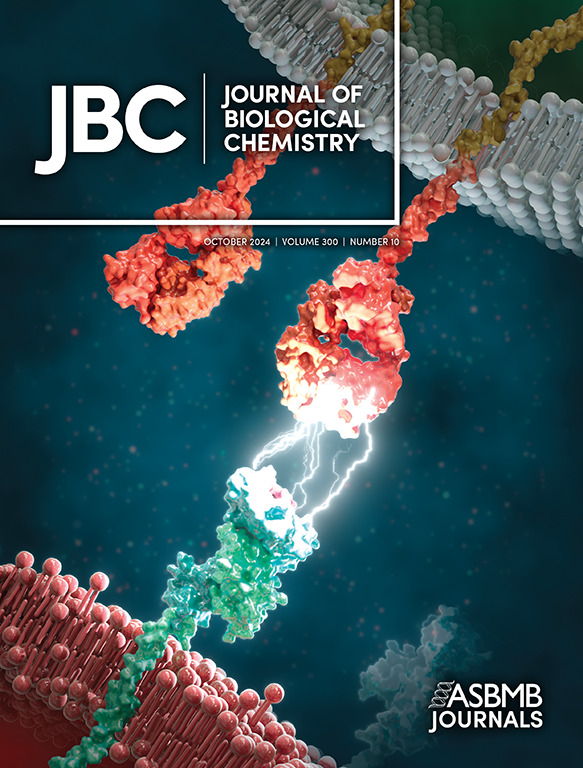The lipid phosphatase INPP4B controls pancreatic cancer cell migration and invasion by regulating fibronectin exocytosis.
IF 4
2区 生物学
Q2 BIOCHEMISTRY & MOLECULAR BIOLOGY
引用次数: 0
Abstract
Increased expression of Inositol Polyphosphate 4-Phosphatase, Type II (INPP4B) correlates with aggressive phenotypes in pancreatic ductal adenocarcinoma (PDAC). Although prior studies have linked INPP4B to lysosome positioning, exocytosis, and enhanced cell migration and invasion in PDAC, the specific mechanisms underlying these processes remain unclear. In this study, we demonstrate that INPP4B promotes fibronectin 1 (FN1) secretion via TRPML1-dependent lysosomal exocytosis. Additionally, we show that INPP4B-mediated regulation of F-actin formation, focal adhesion kinase (FAK) activation, and increased cell migration and invasion depend on FN1 exocytosis. These findings underscore the INPP4B-TRPML1-FN1 axis as a critical contributor to PDAC aggressiveness and identify it as a promising candidate for the development of new therapeutic strategies.脂质磷酸酶INPP4B通过调节纤维连接蛋白胞外分泌来控制胰腺癌细胞的迁移和侵袭。
II型肌醇多磷酸4-磷酸酶(INPP4B)的表达增加与胰腺导管腺癌(PDAC)的侵袭性表型相关。尽管先前的研究已经将INPP4B与PDAC中溶酶体定位、胞吐和增强的细胞迁移和侵袭联系起来,但这些过程的具体机制尚不清楚。在这项研究中,我们证明了INPP4B通过trpml1依赖性溶酶体胞吐作用促进纤维连接蛋白1 (FN1)的分泌。此外,我们发现inpp4b介导的f -肌动蛋白形成、局灶黏附激酶(FAK)激活以及细胞迁移和侵袭增加的调节依赖于FN1胞吐。这些发现强调了INPP4B-TRPML1-FN1轴是PDAC侵袭性的关键贡献者,并将其确定为开发新治疗策略的有希望的候选者。
本文章由计算机程序翻译,如有差异,请以英文原文为准。
求助全文
约1分钟内获得全文
求助全文
来源期刊

Journal of Biological Chemistry
Biochemistry, Genetics and Molecular Biology-Biochemistry
自引率
4.20%
发文量
1233
期刊介绍:
The Journal of Biological Chemistry welcomes high-quality science that seeks to elucidate the molecular and cellular basis of biological processes. Papers published in JBC can therefore fall under the umbrellas of not only biological chemistry, chemical biology, or biochemistry, but also allied disciplines such as biophysics, systems biology, RNA biology, immunology, microbiology, neurobiology, epigenetics, computational biology, ’omics, and many more. The outcome of our focus on papers that contribute novel and important mechanistic insights, rather than on a particular topic area, is that JBC is truly a melting pot for scientists across disciplines. In addition, JBC welcomes papers that describe methods that will help scientists push their biochemical inquiries forward and resources that will be of use to the research community.
 求助内容:
求助内容: 应助结果提醒方式:
应助结果提醒方式:


